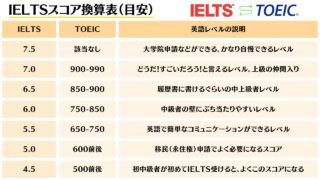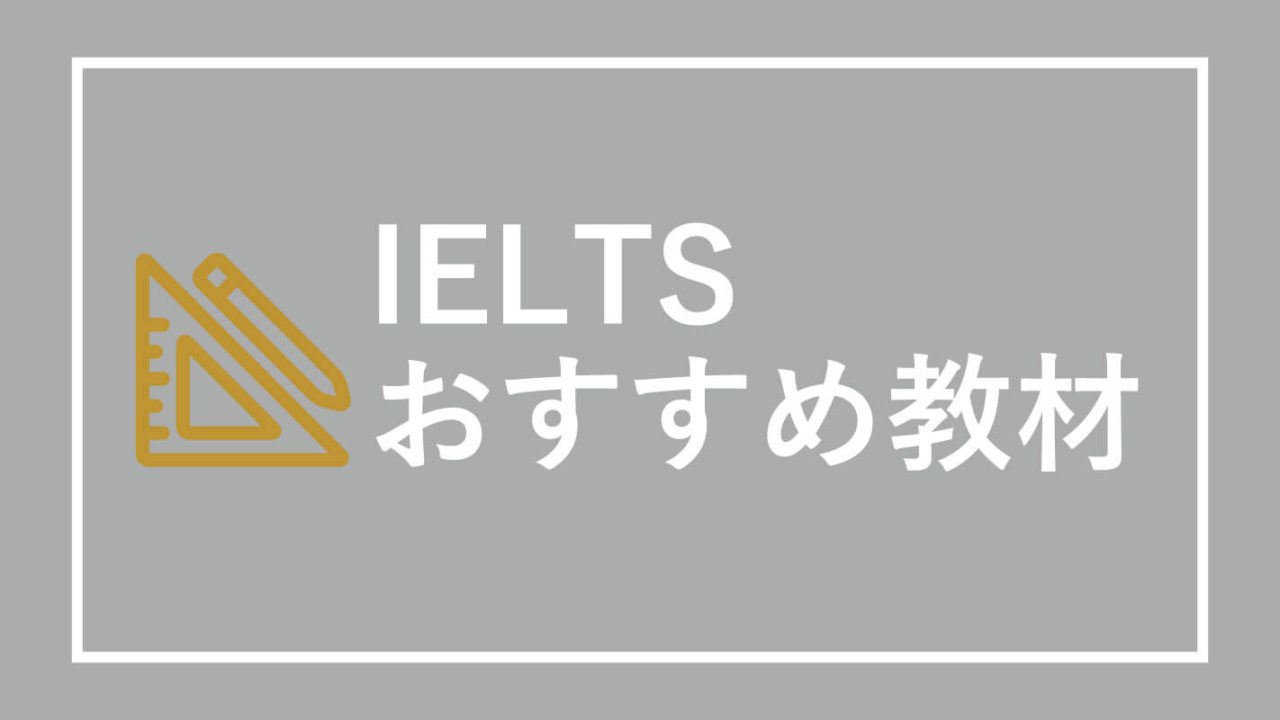IELTSのスピーキングパート3は、多くの受験者が苦手としているセクションです。
15年以上にわたりIELTS業界に携わってきた経験をもとに、最もよく出るトピックを厳選し、例題100選をまとめました。
例題だけでなく、解答例、話の組み立て方を解説していますので、IELTSスピーキング対策をしっかりすることができます。
また、最新の問題プールについての情報や、スピーキング壁打ちトレーニング法についても詳しく説明しているので、見落とすことなく読んでくださいね。
明日香出版社より、IELTSスピーキング特化の単語集を出版しています。


IELTSスピーキングパート3 解答例と構成テンプレート
問題
Do you think local businesses are important for a neighbourhood?
地元企業は地域にとって重要だと思いますか?
解答例
I regard local businesses as crucial for a neighbourhood because those businesses stimulate the economy of their local community. For example, a local café in my hometown showcases art from nearby artists, hosts community events, or even collaborates with other small businesses. It creates a hub for local culture and commerce that strengthens the neighborhood’s fabric.
私は、地元企業はその街にとって重要だと考えています。地元の経済を刺激するからです。例えば、私の地元にあるカフェでは、街のアーティストのアートを展示したり、コミュニティ・イベントを開催したり、あるいは他の中小企業と協力したりしています。そうすることで、地域の文化や商業の拠点が形成され、近隣のコミュニティが強化されています。
上の問題の組み立て方を解説していきますね。
Part 3は、基本的に3ステップで構成するのが一番簡単で答えやすいです。
また、この3ステップに沿うように心がけて話すと、繰り返しや冗長を防ぐことができるので流暢性ポイントも狙うことができます。
Step 1:結論
I regard local businesses as crucial for a neighbourhood
私は、地元企業はその街にとって重要だと考えています。
問題は「重要だと思いますか?」という問いかけだったので、「重要かどうか」ということについてまず最初に述べます。
Step 2:理由もしくは詳細
because those businesses stimulate the economy of their local community.
そういった企業は地元の経済を刺激するからです。
Step 1の結論で述べたことの理由や、さらに詳しく説明します。この場合は、「地元ビジネスは重要だ」と結論で言っているので、どういった意味で重要なのか、ということを述べています。
Step 3:具体例
For example, a local café in my hometown showcases art from nearby artists, hosts community events, or even collaborates with other small businesses. It creates a hub for local culture and commerce that strengthens the neighborhood’s fabric.
例えば、私の地元にあるカフェでは、街のアーティストのアートを展示したり、コミュニティ・イベントを開催したり、あるいは他の中小企業と協力したりしています。そうすることで、地域の文化や商業の拠点が形成され、近隣のコミュニティが強化されています。
Step 1, 2で出した結論および理由・詳細を裏付けるような具体例を出します。話をわかりやすくするほか、説得力を出す効果があります。
自分や家族、知り合いなど実際のエピソードを出していただくのも良いですね。
多くの人は、Step 1の結論、Step 2の理由、と述べた後に、またStep 1の結論に戻ってしまう、ということをやってしまいます。これは結論の繰り返しとなってしまい、内容が冗長になってしまうのと、単語や表現も同じようになってしまうのでポイントにつながりません。
スコアの上がるポイントを解説(語彙とか)
Step 1の結論は、特にですが、問題文で使われている単語の「言い換え」をすることを心掛けましょう。
先ほどの例でいうと、
- think → regard as
- important → crucial
というように言い換えられています。
スピーキングは瞬発力が必要なので難しいですが・・・
新しい単語やフレーズを覚える際には、例文とともに覚えること、また覚える時には自分が実際にその単語やフレーズを使っているところをイメージすることが重要です。
また、自分のした答えを振り返り、後から「この単語が使えたな」というように少しずつでも言い換えていくことも有効ですね。

IELTSスピーキングパート3 【例題100選】
IELTSスピーキングpart3で、よくでるトピック別に、問題をまとめました。
日本語で答えても難しい質問もあるので、日頃から、これらのトピックについて意識して考えておきましょう。
Education
- How are educational systems in your country changing at the moment?
あなたの国の教育システムは現在どのように変化していますか?
- Should teachers use more technology in the classroom?
教師はもっと教室でテクノロジーを使用すべきですか?
- What are the drawbacks of learning online?
オンライン学習の欠点は何ですか?
- Are teachers well respected in your country?
あなたの国では教師は尊敬されていますか?
Culture
- How are traditional cultures in your country changing today?
あなたの国の伝統的な文化は今日どのように変わっていますか?
- Do people still celebrate traditional festivals in your country?
あなたの国では伝統的な祭りはまだ祝われていますか?
- Do you think people will become more similar culturally in the future around the world?
将来的に世界中の人々は文化的にもっと似てくると思いますか?
- What can governments and individual citizens do to support local ethnic minority groups?
政府や個々の市民は地元の少数民族グループをどのように支援できますか?
Health
- How often do people in your country go to the doctor?
あなたの国の人々はどれくらいの頻度で医者に行きますか?
- Are doctors always trustworthy?
医者はいつも信頼できますか?
- How will hospitals change in the future?
将来的に病院はどのように変わりますか?
- Is traditional medicine an essential part of your culture?
伝統医学はあなたの文化において重要ですか?
- What makes a person healthy?
人を健康にするものは何ですか?
Environment
- How are environmental problems dealt with in your country?
あなたの国では環境問題はどのように対処されていますか?
- What can be done to make people recycle more often?
人々がもっとリサイクルするようにするためには何ができますか?
- What is the most pressing environmental problem?
最も差し迫った環境問題は何ですか?
- Is recycling a common practice in your country?
あなたの国ではリサイクルは一般的な習慣ですか?
Communication
- What benefits does the internet bring to communication?
インターネットがコミュニケーションにどのような利益をもたらしますか?
- Which one is better, being a communicator or a listener?
コミュニケーターとリスナーのどちらが良いですか?
- What qualities does a person need to have to be a good communicator?
良いコミュニケーターになるために必要な資質は何ですか?
- What qualities do people need to speak in public?
人前で話すために必要な資質は何ですか?
- How important is it to be a good listener when communicating?
コミュニケーションにおいて良いリスナーであることはどれほど重要ですか?
Sports and Exercise
- Which sport do you think most people like to do? And why?
ほとんどの人が好きなスポーツは何だと思いますか? そしてその理由は何ですか?
- Do children need exercise?
子供には運動が必要ですか?
- What are the benefits of exercise?
運動の利点は何ですか?
- What can be done to get children into sport?
子供たちをスポーツに参加させるためにはどうすればいいのか?
- What sports programs do people like to watch in your country?
あなたの国ではどのようなスポーツプログラムが人気ですか?
Money
- Should children have pocket money? Why?
子供にお小遣いを与えるべきですか?なぜですか?
- Should children learn how to use money at school or from their parents?
子供たちは学校でお金の使い方を学ぶべきですか、それとも親から学ぶべきですか?
- How do people save money?
人々はどのようにお金を貯めますか?
- Is it easy for people to save money to buy something expensive?
高価な物を買うためにお金を貯めるのは簡単ですか?
- Why can’t some people save money?
なぜ一部の人々はお金を貯められないのでしょうか?
Jobs
- What are the most popular jobs for young people in your country?
あなたの国では若者に人気のある仕事は何ですか?
- What is the difference between high-income and low-income jobs in your country?
あなたの国で高収入の仕事と低収入の仕事の違いは何ですか?
- When is the right time for young people to start making serious plans for their future careers?
若者が将来のキャリアについて真剣に計画を立てるべき時期はいつですか?
- Which jobs have the highest salaries?
どの仕事が最も高い給与を得ていますか?
- Which jobs pay low wages but require a high level of skills?
賃金は低いが、高度なスキルを必要とする仕事は何か?
Movies
- Do you believe in movie reviews?
映画レビューを信じますか?
- What are the different types of films in your country?
あなたの国にはどのような種類の映画がありますか?
- Are historical films popular in your country? Why?
歴史映画はあなたの国で人気がありますか? なぜですか?
- Do you think films with famous actors or actresses would be more popular?
有名な俳優や女優が出演している映画はより人気があると思いますか?
- Should the director pay a lot of money to famous actors?
監督は有名な俳優に多額のお金を支払うべきですか?
Advertising
- What kinds of ads are common in your country?
あなたの国ではどのような広告が一般的ですか?
- Do you think companies should be allowed to advertise to children?
企業は子供に広告をすることを許可されるべきですか?
- Are there laws regulating ads where you live?
あなたの住んでいる場所では広告を規制する法律がありますか?
- What makes a good advertisement?
良い広告を作るためには何が必要ですか?
- Will ads still be useful and common in the future?
将来的にも広告は有用で一般的であり続けるでしょうか?
最新のスピーキング予想問題(問題プール)を7日間IELTSメール講座で定期的に配布しています↓

Books
- What genres are popular in your country?
あなたの国ではどのジャンルが人気ですか?
- How does the film industry impact booksellers in your country?
映画産業はあなたの国の書店業界にどのような影響を与えていますか
- How can people be encouraged to read more?
人々がもっと読書するように促すにはどうすればよいですか?
- What are the differences between reading a real book and an online one?
実際の本を読むこととオンラインで読むことの違いは何ですか?
Meetings
- Are meetings common for most businesses in your country?
あなたの国では会議は一般的ですか?
- Are meetings a waste of time?
会議は時間の無駄ですか?
- How could meetings be made more efficient?
会議をもっと効率的にするにはどうすればよいですか?
- How has technology changed the way people hold meetings?
テクノロジーは会議のあり方をどう変えたか?
Moving
- Is it common in your country for people to move a lot?
あなたの国では、人々はよく引っ越しをするのですか?
- Do most people in your country live in cities?
あなたの国の大部分の人々は都市に住んでいますか?
- Why do some people live to live in the same place their whole lives?
一生同じ場所に住み続ける人々がいるのはなぜですか?
- How can less privileged groups be encouraged to move more often?
恵まれないグループがもっと頻繁に引っ越すようにするにはどうすればよいですか?
Eating and Food
- Are family meals common in your country?
あなたの国では家族の食事は一般的ですか?
- Is fast food always unhealthy?
ファストフードは常に不健康ですか? - Is food an important part of your culture?
食べ物はあなたの文化にとって重要ですか?
- Is there too much attention paid to food?
食事に気を配りすぎてはいないだろうか?
Mobile Phones and Smartphones
- What are the advantages of smartphones?
スマートフォンの利点は何ですか?
- Should children be allowed to own smartphones?
子供にスマートフォンを持たせるべきですか?
- Do you think have a major or minor impact on mental health?
スマートフォンは精神的健康に大きな影響を与えると思いますか?
- Where in your country is it not appropriate to use a phone?
あなたの国ではどこで携帯電話を使用するのが不適切ですか?
- Do you think smartphone usage may decline in the future?
将来的にスマートフォンの使用は減少すると思いますか?
Life Goals
- How important is it for people to set goals?
目標を設定することはどれほど重要ですか?
- Do people set different goals at different stages of life?
人生の異なる段階で人々は異なる目標を設定しますか?
- Are personal goals more important than professional goals?
個人的な目標は職業的な目標よりも重要ですか? - What sort of goals do young people today set?
今日の若者はどのような目標を設定しますか?
- Are people becoming more pessimistic about their life goals?
人々は人生の目標に対して悲観的になっているのだろうか?
Success
- What factors lead to success?
成功にはどのような要因が関与していますか?
- What do people need to sacrifice for success?
成功のために人々は何を犠牲にする必要がありますか?
- Is it easy for a business to be successful without affecting the environment?
環境に影響を与えずに企業が成功するのは簡単ですか?
Complaints
- How do companies train their staff to deal with complaints?
企業は従業員に苦情対応の訓練をどのように行っていますか?
- What do people usually complain about?
人々は通常何に対して苦情を言いますか?
- How do most people complain, in writing or by other methods?
ほとんどの人はどのように苦情を言いますか、書面ですか、それとも他の方法ですか?
- Who are more likely to make complaints, older people or younger people?
誰がより多くの苦情を言いますか、年配の人々ですか、それとも若者ですか?
Losing Things
- What kind of people tend to lose things more often than others?
どのような人々が他の人々よりも物をなくしやすいですか?
- What kind of things do people often lose?
人々はどのような物をよくなくしますか?
- Why do some people find lost things easier than others?
なぜ一部の人々は失った物を他の人々よりも見つけやすいのでしょうか?
- What do you think are why some people pick lost things and do not give back?
なぜ一部の人々は見つけた物を返さずに取ってしまうと思いますか?
Preserving Historic Buildings
- In your opinion, what are the benefits of preserving historic buildings in a city or community?
都市やコミュニティにおいて歴史的建物を保存することの利点は何だと思いますか?
- Does preserving historic buildings cost too much?
歴史的建物の保存には多くの費用がかかりますか?
- How do you think preserving historic buildings can contribute to the cultural identity of a city or region?
歴史的建物の保存が都市や地域の文化的アイデンティティにどのように貢献すると考えますか?
- What would you say to those who prioritize development over the preservation of historic architecture?
歴史的建築の保存よりも開発を優先する人々に何と言いますか?
Technology
- What technology do people currently use?
人々が現在使用しているテクノロジーは何ですか?
- Why do big companies introduce new products frequently?
なぜ大企業は頻繁に新製品を発表するのですか?
- Why do technology companies keep upgrading their products?
なぜテクノロジー企業は製品を常にアップグレードするのですか?
- What changes has the development of technology brought about in our lives?
テクノロジーの発展は私たちの生活にどのような変化をもたらしましたか?
Transport
- What transportation do you use the most?
あなたが最もよく使う交通手段は何ですか?
- Is public transportation popular in your country?
公共交通機関はあなたの国で人気がありますか?
- What can be done to improve public transport services in your hometown?
あなたの故郷の公共交通サービスを改善するためには何ができますか?
- How is the subway system developing in your country?
あなたの国では地下鉄システムはどのように発展していますか?
Social Media / News
- Is it reasonable to share something on social media?
ソーシャルメディアで何かを共有することは良いことですか?
- Should the press only publish good news?
メディアは良いニュースだけを報道するべきですか?
- How does social media help people access information?
ソーシャルメディアは人々が情報にアクセスするのにどのように役立ちますか?
- What kind of good news do people often share in the community?
コミュニティでどのような良いニュースがよく共有されますか?
- Do most people like to share good news with others?
ほとんどの人は他人と良いニュースを共有するのが好きですか?
- Do people like to hear good news from their friends?
人々は友人から良いニュースを聞くのが好きですか?
IELTSスピーキングパート3独学法【壁打ち】

「独学でIELTSの目標スコアを取る方法」では、IELTSを「独学で」勉強して結果を出す方法を具体的に解説しております。
独学のスタートにぜひどうぞ!





















